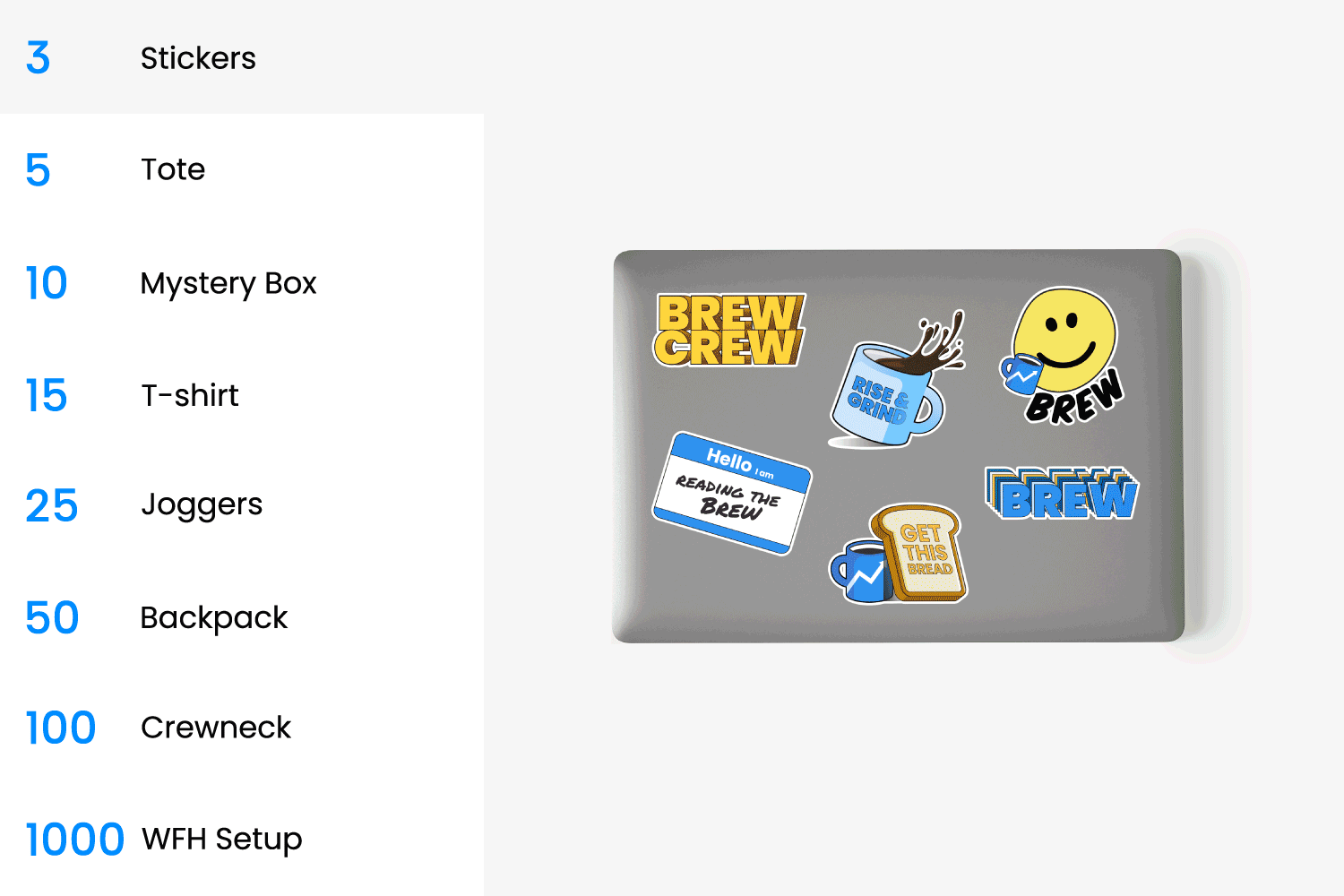Greetings! National Compliment Day (really, we looked it up!) is a good time for us to remind you that you’re crushing it, HR pro! You do great work, and everytime you open an HR Brew newsletter, you get even better at your job. Go you!
In today’s edition:
 Now serving HR goals Now serving HR goals
 Let’s try that again Let’s try that again
 Coworking Coworking
—Courtney Vinopal, Adam DeRose
|
|
BetterUp
McDonald’s has set ambitious business goals for the next three years, with plans to open almost 10,000 additional restaurants globally by 2027 and drive an additional $25 billion in sales from its loyalty program, up from around $20 billion currently.
But for the fast-food chain’s corporate leaders, HR goals are just as important as business goals, Chief People Officer Tiffanie Boyd told a group of conference attendees on Dec. 7, the day after McDonald’s announced this expansion. Boyd was speaking on a panel at an event hosted by the Center for Purpose and Performance, a research arm of coaching platform BetterUp.
People goals  business goals. Since 2022, McDonald’s has set “officer people goals” for all its corporate leaders globally, including VPs, SVPs, and managing directors. These goals include succession planning, investing in future leaders through mentoring, coaching, and development, and creating an “environment of inclusion,” Boyd said. If corporate leaders don’t meet those goals, they won’t get the highest performance rating, which can in turn affect their compensation. business goals. Since 2022, McDonald’s has set “officer people goals” for all its corporate leaders globally, including VPs, SVPs, and managing directors. These goals include succession planning, investing in future leaders through mentoring, coaching, and development, and creating an “environment of inclusion,” Boyd said. If corporate leaders don’t meet those goals, they won’t get the highest performance rating, which can in turn affect their compensation.
In order to help corporate leaders pull off these goals, it’s important to have infrastructure in place, Boyd told HR Brew.
Keep reading here.—CV
|
|
PRESENTED BY BETTERMENT AT WORK
|
Here’s a tough stat to swallow: 64% of employees say student loan debt makes it harder to save for retirement. In a year marked by the soaring cost of living and turbulent markets, employees are worried about their futures.
To help, Betterment at Work surveyed 1k full-time employees to see how employers can better address these concerns in 2024. The results are pretty telling.
Check out some of their findings:
- Only 40% of employees said they feel financially stable, with a stark difference between genders.
- 60% said they’d be enticed to leave their job for an employer that offers better financial benefits.
-
58% of employees said financial anxiety made it difficult to focus at work.
Get the report and meet your employees where they need help.
|
|
Paul Morigi/Getty Images
The Family and Medical Leave Act (FMLA) was hailed as groundbreaking when it was first enacted in 1993, but the US’s signature leave policy is showing its age—as was evident from a birthday party thrown in its honor earlier this year.
The US is one of just six countries in the world with no national paid leave program. And while the FMLA provides US employees up to 12 weeks of unpaid leave to bond with a newborn child, care for an immediate family member, or deal with a serious health condition, lawmakers have been working to pass something more robust for over a decade now—albeit unsuccessfully.
Once more with feeling. At the end of 2023, a bipartisan group of lawmakers announced a renewed legislative effort to get something on the table. Lawmakers in the Senate and House released a letter on Dec. 13 seeking input from stakeholders and the public on expanding access to “paid parental, caregiving, and personal medical leave.” In an interview with the Washington Post, New York Sen. Kirsten Gillibrand, a Democrat leading the Senate group, said the goal of the push was to get “real paid leave started for a certain number of Americans who would never have access.”
This is a rare legislative effort on paid family leave from lawmakers on both sides of the aisle.
Keep reading here.—CV
|
|
Marcie Chavez
Here’s this week’s edition of our Coworking series. Each week, we chat 1:1 with an HR Brew reader. Want to be featured in an upcoming edition? Click here to introduce yourself.
Marcie Chavez is the director of people at Artisight, an AI healthcare tech company providing hospitals and clinicians with tech to increase efficiency and do more with less staff—something Chavez said hospitals need amid a widespread staffing shortage.
Chavez began her career in marketing and communications, then fell in love with working in hospitals and healthcare. It was at a local hospital—as a comms pro—that she began training employees and got her foot in the HR door. After returning to school for an MBA focused on HR and organizational design, Chavez then moved into HR at that hospital, which she described as “baptism by fire.”
She is especially thankful for small peer networks, and found her colleagues across different organizations have been generous with their knowledge. “When you get to know these smaller resource groups, folks are very willing to share so it’s really exciting,” she said.
What’s the best change you’ve made at work?
One memorable change I made at a job was establishing a job shadow/mentorship program for high school students. It was a goal of mine to create a pipeline program for students interested in healthcare, and to see that come to fruition was very rewarding for me.
Keep reading here.—AD
|
|
|
Are you an employee who asks “level 1” questions or “level 5” questions? The answer could determine the outcome of your next performance review. This week’s episode of BOSSY breaks down all the best frameworks—whether you’re managing or being managed.
|
|
Francis Scialabba
Today’s top HR reads.
Stat: Only 23% of workers in jobs requiring “computer vision,” or image-recognition technology, could be cost-effectively replaced by AI, leading MIT researchers to believe it will be years before the tech is cost effective to employers. (Quartz)
Quote: “When the economy is booming and when the politics are amenable, we see a lot of growth in diversity programming…When there’s either a change in the political winds—which is what’s happening now—or a recession, we’ve seen cutbacks.”—Frank Dobbin, a DE&I expert at Harvard, on HR efforts to make DE&I fly “under the radar” (the New York Times)
Read: Goldman Sachs economists predict the labor market may be returning to pre-pandemic norms. (Business Insider)
Forget FUD: More than half of employees say financial anxiety makes it difficult to focus at work. Betterment at Work put together a study to help employers better address these concerns. Check it out.* *A message from our sponsor.
|
|
|
Share HR Brew with your coworkers, acquire free Brew swag, and then make new friends as a result of your fresh Brew swag.
We’re saying we’ll give you free stuff and more friends if you share a link. One link.

Your referral count: 2
Click to Share
Or copy & paste your referral link to others:
hr-brew.com/r/?kid=9ec4d467
|
|
|









